What is a Car Service? A Comprehensive Guide
Body
Introduction Car servicing is an essential aspect of vehicle maintenance that ensures your car is running smoothly, efficiently, and safely. Regular servicing not only extends the lifespan of your vehicle but also helps in identifying potential issues before they become major problems. In this comprehensive guide, we will explore everything you need to know about car servicing, including its importance, different types of services, what is included in a service, and how often you should get your car serviced.
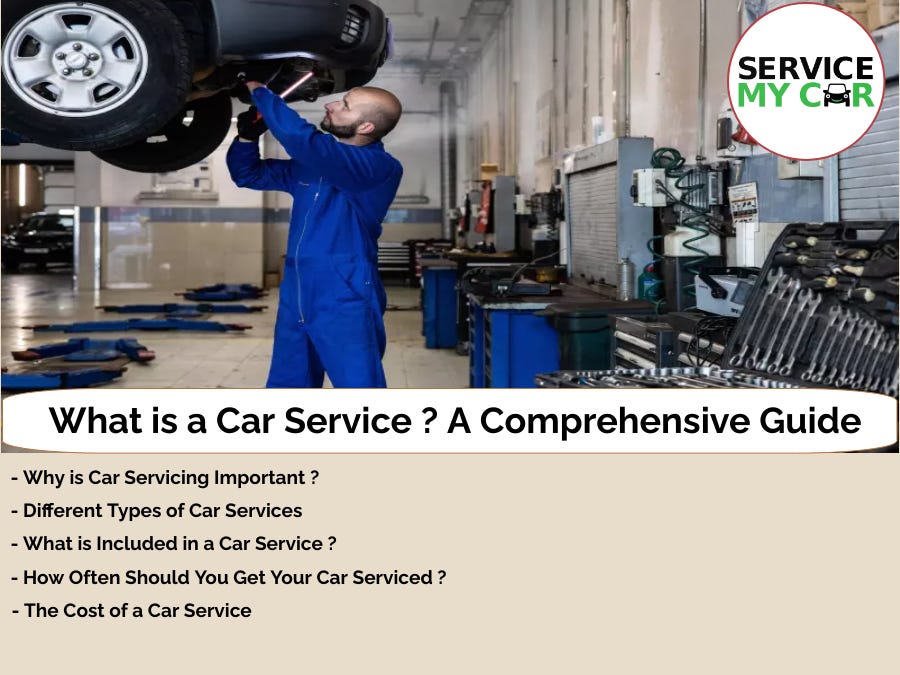
Why is Car Servicing Important?
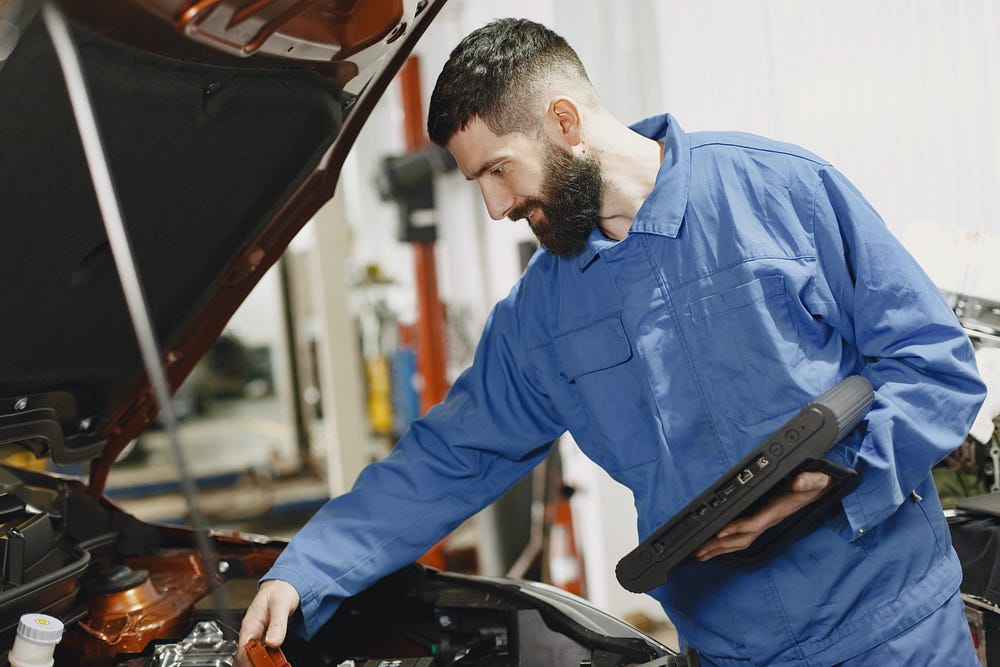
Regular car servicing is crucial for several reasons. Firstly, it ensures that your vehicle is running at its optimal performance, resulting in improved fuel efficiency and better handling. It also helps in identifying any potential issues or worn-out components that may lead to breakdowns or expensive repairs if left unattended. Additionally, a complete service history adds value to your car when you decide to sell it, as buyers are more confident in purchasing a well-maintained vehicle.
Different Types of Car Services
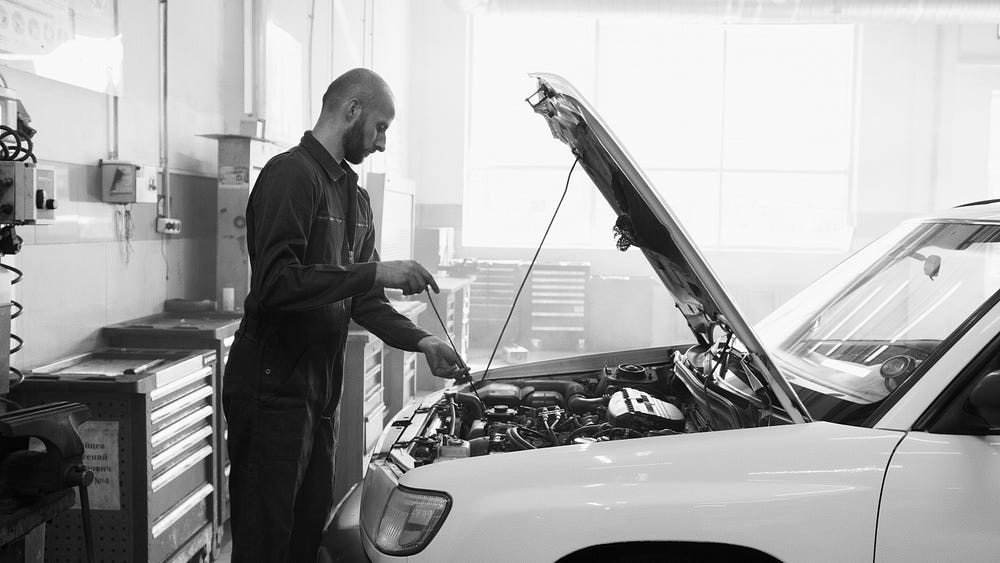
There are various types of car services available, each with its own level of thoroughness and recommended interval. Let's explore the most common types:
Interim Service
An interim service is a less comprehensive version of a full service and is usually recommended every six months or 6,000 miles, whichever comes first. It includes a 50-point inspection, an engine oil change, and a new oil filter installation. While it is helpful in addressing any minor issues, it should not replace a full service.
Full Service
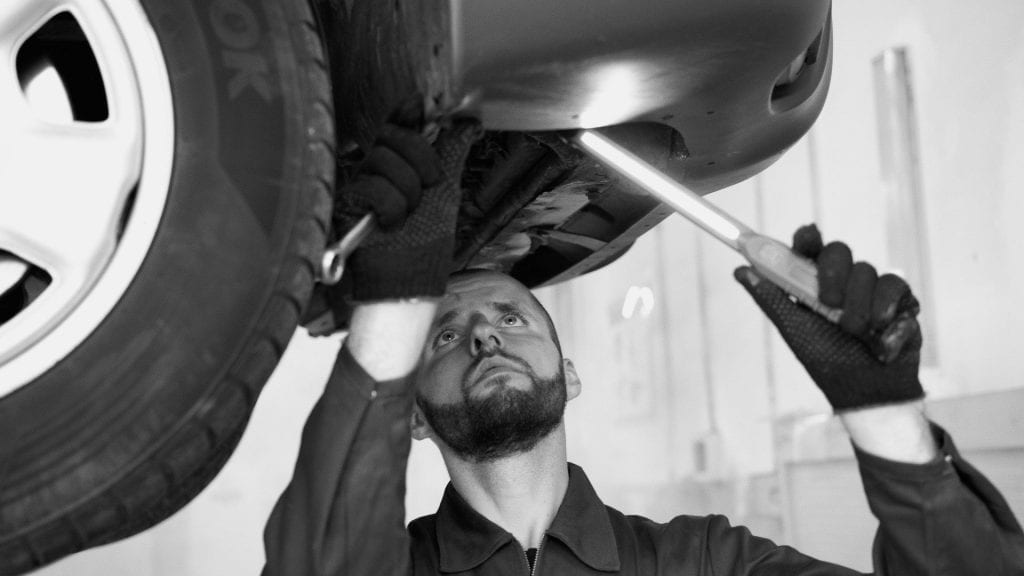
A full service is the most extensive type of service recommended for your vehicle. It is typically performed annually or every 12,000 miles and involves a 77-point inspection. A full service includes an engine oil and filter change, a comprehensive check of all fluids, a thorough brake inspection, and checks on over 50 other key components, including safety-related features. It may also include the replacement of spark plugs, air filters, wheel alignment, and suspension checks.
Manufacturer Service
If you own a higher-spec vehicle, an older car, or a luxury model, you may require a manufacturer service. The manufacturer's handbook will provide specific instructions, and you will need to take your vehicle to an authorized garage or dealership. Manufacturer services often utilize official parts and fluids and are carried out by professionals trained by the manufacturer.
Major Service
A major service is a more comprehensive version of a full service and includes an extensive range of component replacements and fixes. It is recommended when a vehicle requires significant maintenance or has reached a specific mileage milestone.
What is Included in a Car Service?
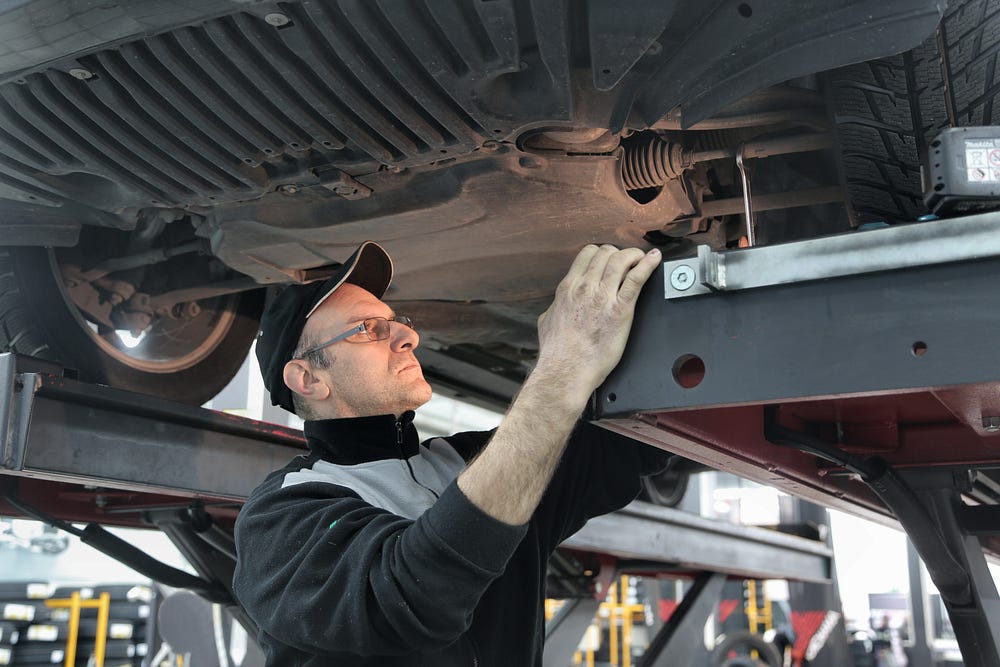
The exact components included in a car service may vary depending on the type of service and the service provider. However, here are some common elements you can expect to be covered:
Visual Inspection and Checks
During a car service, a mechanic will perform a visual inspection of various components and systems to ensure they are functioning properly. This includes checking for any leaks, signs of wear and tear, and loose or damaged parts. Some specific areas that may be inspected include:
- Engine bay
- Fluid levels (engine oil, coolant, brake fluid, power steering fluid, etc.)
- Belts and hoses
- Battery and electrical connections
- Brake system
- Suspension and steering components
- Exhaust system
- Wheels and tires
- Lights and signals
- Windshield wipers and washers
- Interior controls and features
Fluid Changes and Top-ups
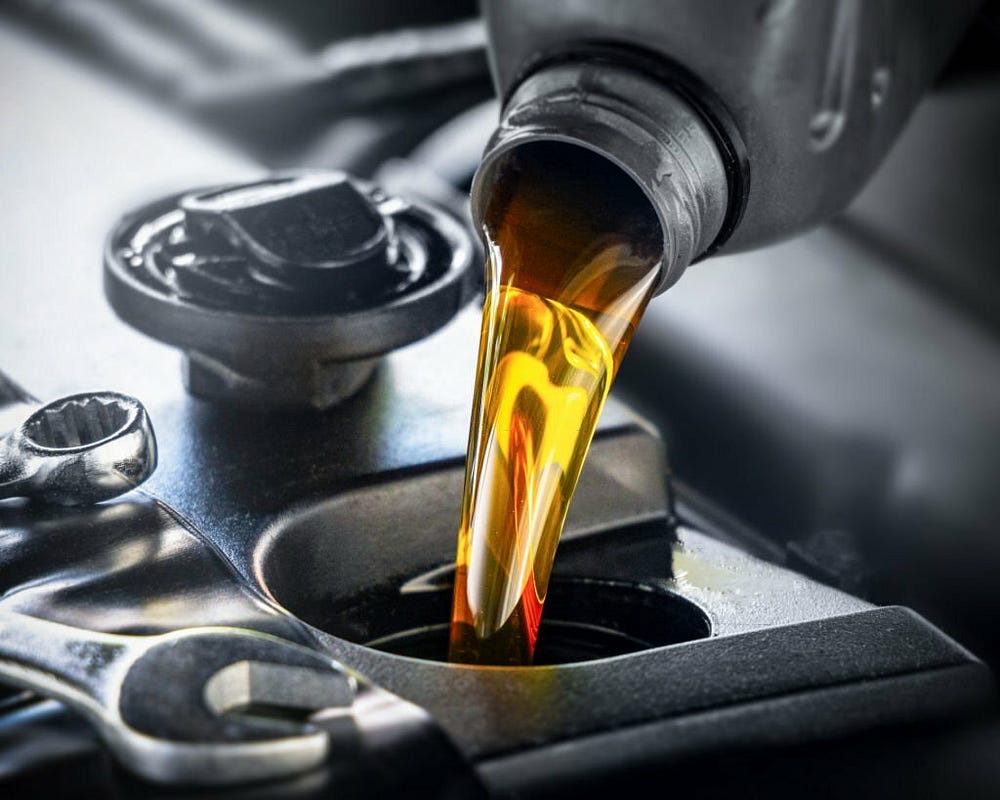
Fluid maintenance is an essential part of a car service. This includes changing the engine oil and filter, topping up various fluids, and replacing filters as necessary. The fluids that may be addressed during a service include:
- Engine oil
- Coolant/antifreeze
- Brake fluid
- Power steering fluid
- Transmission fluid (if applicable)
- Windshield washer fluid
Brake Inspection and Maintenance
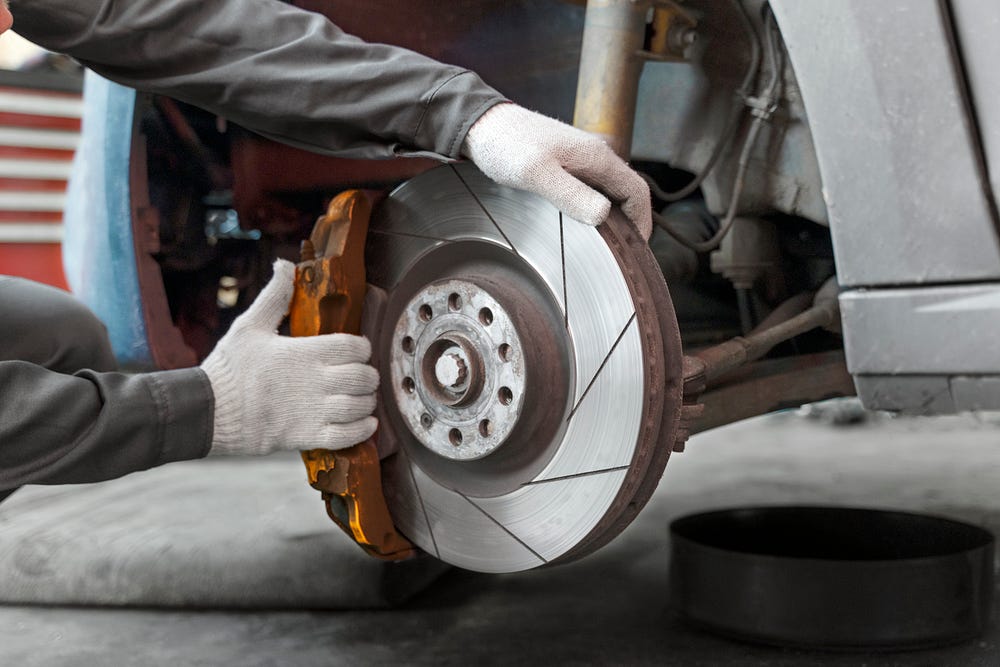
The brake system is crucial for the safety of your vehicle. During a service, the mechanic will inspect the brake pads, discs, calipers, and brake lines for wear and tear. They may also clean and lubricate the relevant components, adjust the handbrake if necessary, and perform a brake fluid change if it hasn't been done recently.
Air Filter and Cabin Filter Replacement
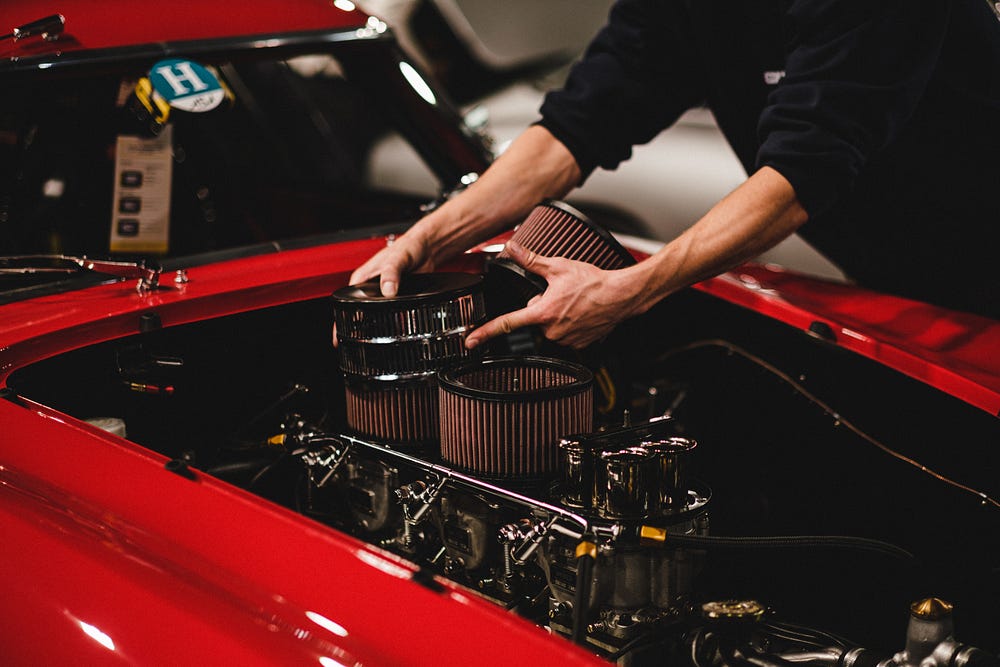
The air filter prevents debris and contaminants from entering the engine, while the cabin filter ensures clean air inside the vehicle's cabin. These filters may be replaced during a service if they are dirty or clogged.
Spark Plug Replacement

Spark plugs play a vital role in the combustion process of your engine. Over time, they can wear out and affect engine performance. If necessary, a mechanic may replace the spark plugs during a service.
Additional Checks and Maintenance

A comprehensive car service may include additional checks and maintenance tasks, such as:
- Wheel alignment and tire rotation
- Suspension component checks
- Fuel system inspection
- Cooling system check
- Timing belt replacement (if due)
- Emission system check
- Battery and charging system test
How Often Should You Get Your Car Serviced?
The frequency of car servicing depends on several factors, including the age of your vehicle, mileage, and the manufacturer's recommendations. As a general guideline, most manufacturers recommend servicing your car at least once a year or every 12,000 miles, whichever comes first. However, some newer vehicles with extended service intervals may require servicing every two years or more.
It's important to consult your car's owner's manual for the manufacturer's recommended service intervals specific to your vehicle. Additionally, if you notice any unusual noises, performance issues, or warning lights, it's advisable to have your car checked by a mechanic promptly, even if it's before the recommended service interval.
Can You Get a Car Service at Home?

Yes, you can now get a car service from the comfort of your own home or workplace. Mobile mechanics offer the convenience of having your car serviced on-site, eliminating the need to drop off and pick up your vehicle from a traditional garage. Choosing between a mobile mechanic and a local garage depends on your preference and the type of service required. Both options have their benefits, and it's essential to ensure that the service provider is reputable and qualified.
If you prefer to carry out your own car service, it's important to consider safety as the top priority. While some basic maintenance tasks can be performed by car owners, certain complex procedures should be left to professionals. It's crucial to follow proper procedures, use the correct tools and equipment, and refer to reliable sources for guidance if you decide to undertake any DIY car servicing.
The Cost of a Car Service
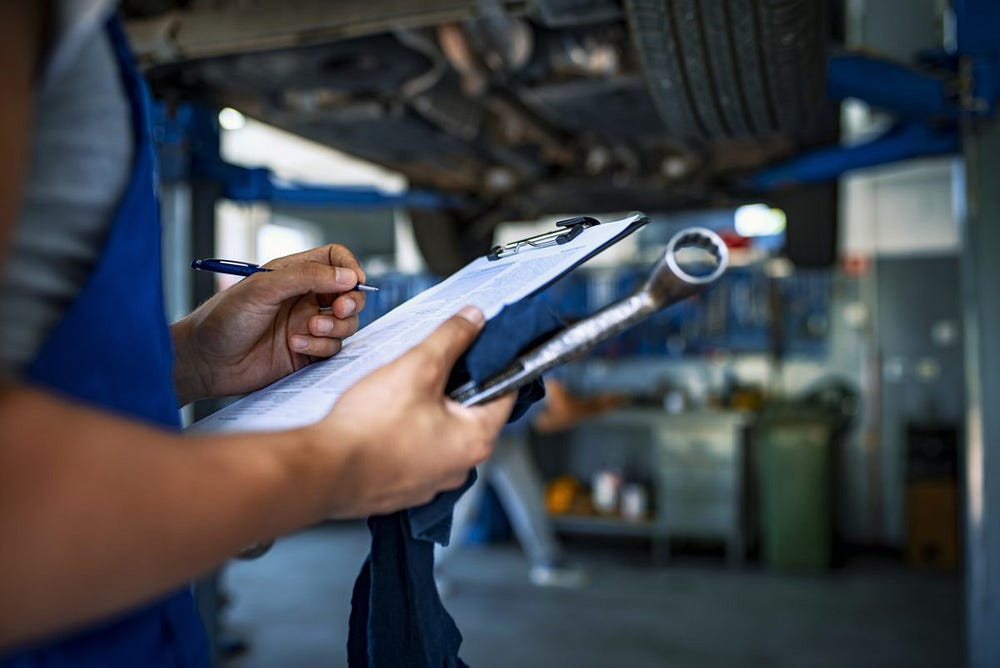
The cost of a car service can vary depending on several factors, including the type of service, the service provider, and your location. As a rough estimate, you can expect to pay around £200 for a full service. However, prices may differ based on the complexity of the service and any additional repairs or parts replacements required.
It's important to note that investing in regular car servicing can save you money in the long run by preventing major breakdowns and expensive repairs. Additionally, a well-maintained vehicle retains its value better, making it easier to sell or trade-in when the time comes.
Conclusion
Car servicing is a crucial aspect of vehicle ownership that ensures your car runs smoothly, efficiently, and safely. Regular servicing helps identify potential issues, extends the lifespan of your vehicle, improves fuel efficiency, and adds value when selling. By understanding the different types of services, what is included in a service, and how often you should get your car serviced, you can make informed decisions regarding the maintenance of your vehicle. Whether you choose a mobile mechanic or a traditional garage, prioritizing regular car servicing is essential for the longevity and performance of your car.









Comments